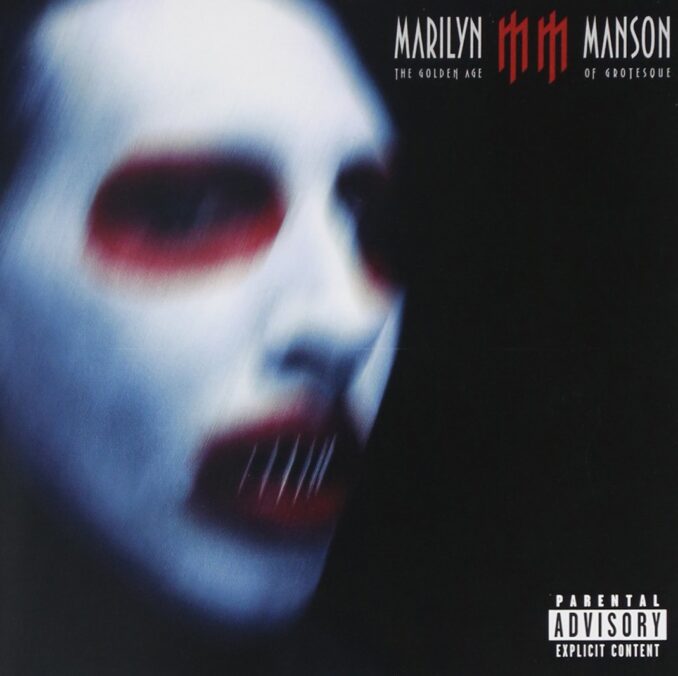
Summary
Universal
Release date: May 7, 2003
User Review
( votes)Marilyn Manson’s fifth album – the properly titled The Golden Age of Grotesque – sees the band pretty much stick to the same formula that has earned them their reputation as one of Rock’s most fascinating outfits in recent years. Although their much-debated shock-rock may wear a little thin these days, there’s no doubt that Marilyn Manson remain a vital ingredient on the music scene. One may of course discuss whether or not the band is still relevant given all the controversy surrounding their as of yet relatively short career.
However, Manson (I’m now talking about the person, not the band associated with him) has in my eyes always been somewhat overrated as sparkers of controversy and spokesman for dissatisfied youth, being little more than a modern-day Alice Cooper, yet at the same time equally underrated as a songwriter and lyricist. One should be careful of drawing the comparison too far, but Manson shares David Bowie’s sense of finding new ways of expressing the visual aspects of his music. Bowie, of course, has always reinvented himself musically as well, something we have yet to see from Mr. Manson. But these are early days, mind you. Creative influences this time around supposedly include the German Weimar republic of the 1920s (which is probably why you’ll find girls dressed in German uniforms in the video for first single “mObscene”) and the Dada art movement (which I’m utterly unfamiliar with, I must admit).
Musically, the new record ranks among Marilyn Manson’s best work, holding quite a few ace tracks. It starts off with “This is the New Shit”, certainly no shitty affair. Its explosive chorus finds Manson screaming “Are you motherfuckers ready for the new shit?” Oh yes, indeed we are. Then follows the excellent “mObscene”, complete with a girl’s choir (!). You won’t find Manson in much better form than this. “Use Your Fist and Not Your Mouth” is the next highlight, punching you in the face with its violent attack on American values. Nothing new in that respect, then. The following songs are also of impressing high quality, if not exactly instant classics. Worthy of mentioning are the arty title track, as well as hard-rocking “Ka-boom Ka-boom” and the intriguing “Para-noir”, which seems like Manson’s take on women and rock stardom; let’s say they haven’t impressed him. The album closes with a brilliant cover of “Tainted Love”, included here as a bonus track. Always in possession of one of rock’s most charismatic and sensual voices, this particular song fits Manson’s vocal style like a glove. What a great way to finish a great album. Will he ever make a bad one?




Be the first to comment